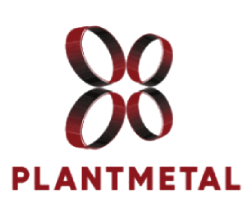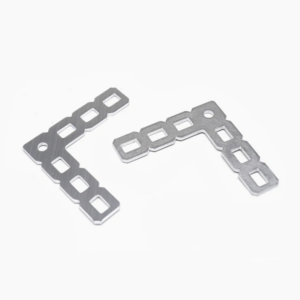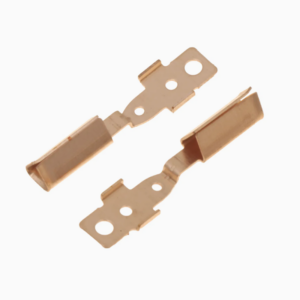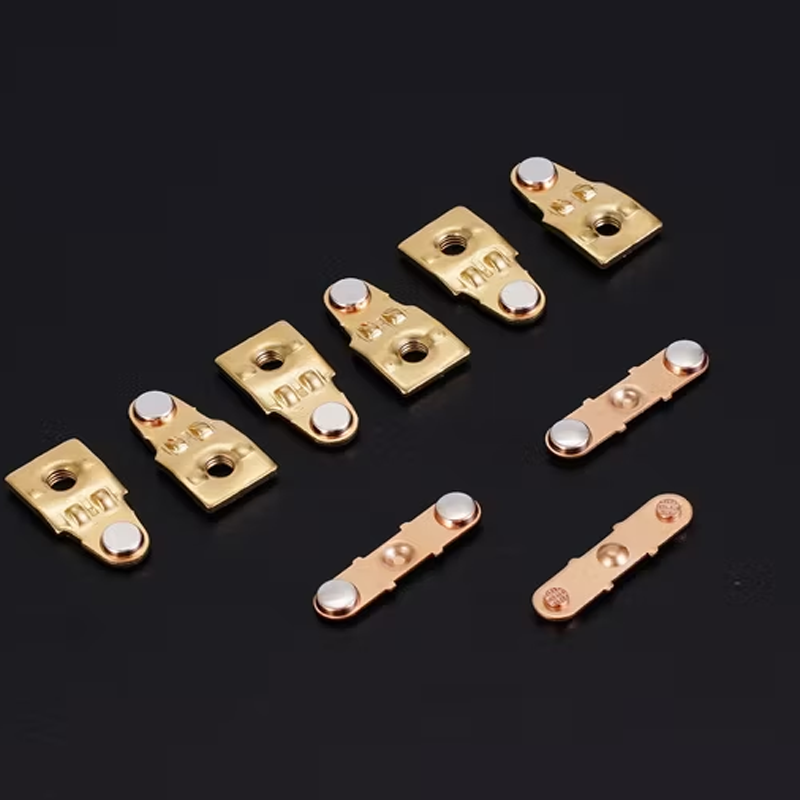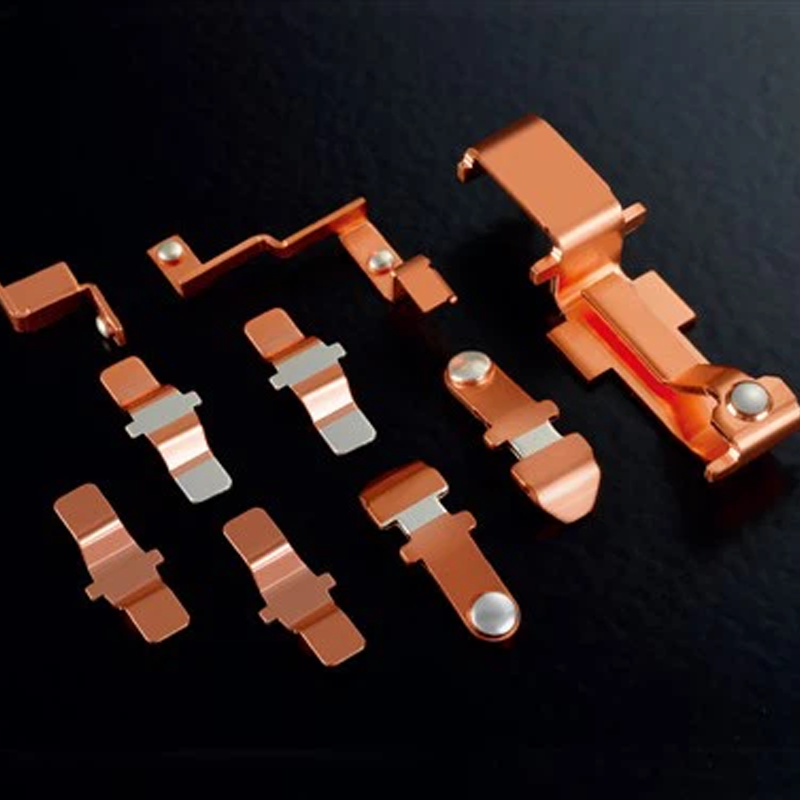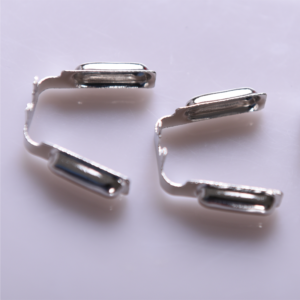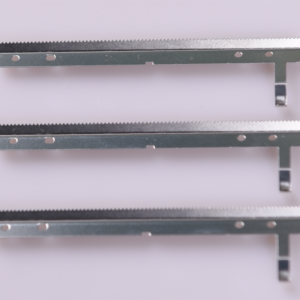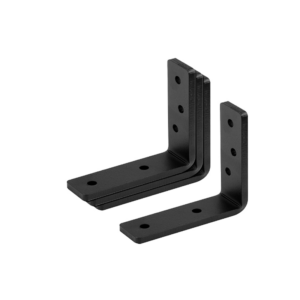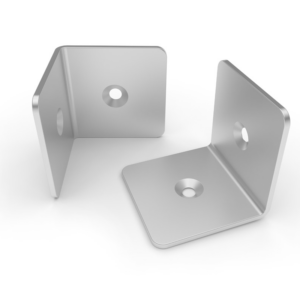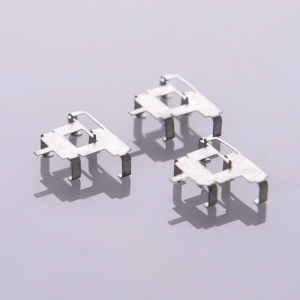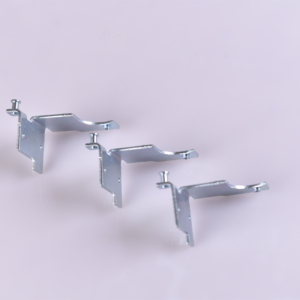Übersicht:
Kundenspezifische elektrische Stanzkontakte sind präzisionsgefertigte Komponenten, die in Ladegeräten für Elektrofahrzeuge (EV) verwendet werden. Diese Kontakte werden typischerweise aus hochwertigen Metallen wie Kupfer, Messing oder Edelstahl gefertigt und mithilfe fortschrittlicher Stanztechniken hergestellt, um Präzision und Langlebigkeit zu gewährleisten. Beschichtungsverfahren wie Gold-, Silber- oder Zinnbeschichtungen verbessern die Leitfähigkeit und Korrosionsbeständigkeit.
Für das Laden von Elektrofahrzeugen bieten diese Kontakte entscheidende Vorteile, darunter zuverlässige elektrische Verbindungen, langlebige Leistung und die Einhaltung von Sicherheitsstandards. Sie sind darauf ausgelegt, Hochleistungs-Ladezyklen standzuhalten, wodurch Effizienz und Langlebigkeit sichergestellt werden.
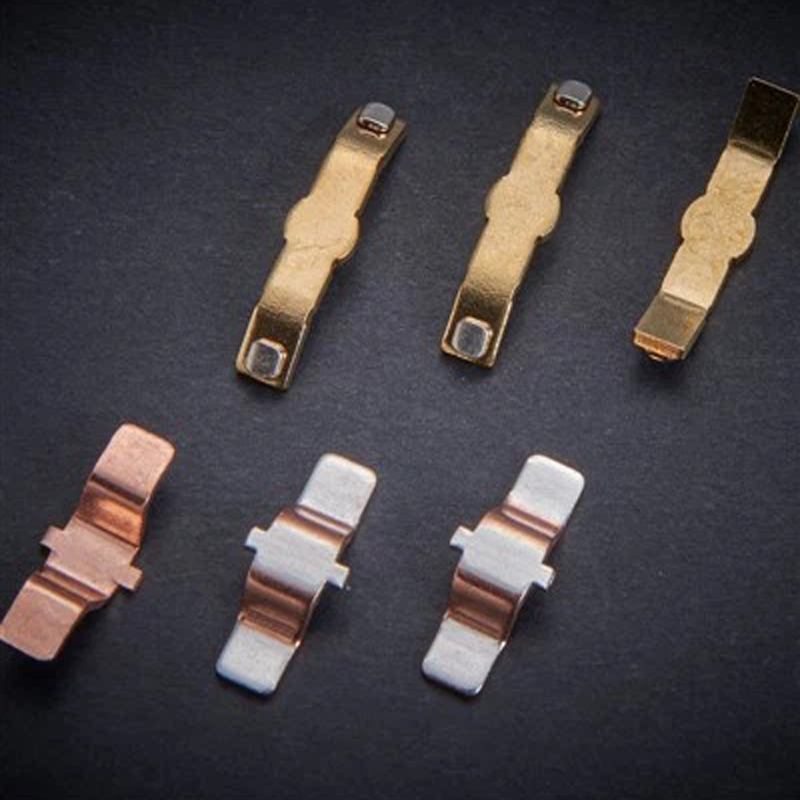
Die Herstellung von kundenspezifischen elektronischen Steckverbindern umfasst die Auswahl der Materialien, Präzisionsbearbeitung, Stanzen, Beschichtung und Montage. Dieser mehrstufige Prozess gewährleistet die Produktion von Hochleistungskomponenten, die für anspruchsvolle Anwendungen wie das Laden von Elektrofahrzeugen geeignet sind.
Merkmale:
- Artikelname: Kundenspezifische elektronische Stanzteile
- Abmessung: Basierend auf der Zeichnung des Kunden
- Handwerkskunst: Prägen
- Fertigstellung: Anrichten
- Preis: Echter sofortiger Fabrikpreis
- Verpackung: Individuelle Verpackung
- Dienstleistungen: OEM verfügbar
Andere Oberflächenbehandlungsoptionen:
- Eloxieren: Ein Verfahren, das eine strapazierfähige, korrosionsbeständige Oxidschicht auf der Oberfläche von Metallen, typischerweise Aluminium, erzeugt. Diese Behandlung verbessert die Verschleißfestigkeit und sorgt für eine gleichmäßige, ästhetische Oberfläche.
- Sandstrahlen: Eine Technik, bei der hochdruckbetriebene abrasive Partikel verwendet werden, um die Oberfläche eines Materials zu reinigen oder zu strukturieren. Sie verbessert die Oberflächenrauheit und die Haftungseigenschaften und wird häufig eingesetzt, um die Haftung von Beschichtungen zu verbessern oder eine matte Oberfläche zu erzielen.
- Lackieren: Das Auftragen von flüssiger Farbe auf die Oberfläche eines Bauteils, um Korrosionsbeständigkeit, ästhetische Anziehungskraft und zusätzlichen Schutz zu gewährleisten. Es wird in verschiedenen Branchen sowohl für funktionale als auch dekorative Zwecke weit verbreitet eingesetzt.
- Pulverbeschichtung: Ein Trockenbeschichtungsverfahren, bei dem ein pulverförmiger Lack auf ein Teil aufgetragen und anschließend unter Hitze ausgehärtet wird. Dies führt zu einer äußerst robusten und gleichmäßigen Oberfläche, die hervorragenden Schutz vor Kratzern, Korrosion und Witterungseinflüssen bietet.
Produktionsprozess:
- Materialauswahl: Der erste Schritt besteht darin, das geeignete Rohmaterial auszuwählen, in der Regel Kupfer oder Kupferlegierungen, um eine hohe Leitfähigkeit und Haltbarkeit der elektrischen Kontakte zu gewährleisten.
- Stanzen: Mit Präzisionsstanzmaschinen wird das ausgewählte Metall zugeschnitten und in die erforderlichen Kontaktprofile geformt. Dieser Schritt stellt sicher, dass die Teile mit hoher Genauigkeit gefertigt werden und die erforderlichen Spezifikationen erfüllen.
- Beschichtung: Nach dem Stanzen durchlaufen die Kontakte Beschichtungsverfahren wie Nickel-, Gold- oder Silberbeschichtung. Dies verbessert die Korrosionsbeständigkeit, steigert die Leitfähigkeit und gewährleistet eine langfristige Leistung, insbesondere in stark beanspruchten Umgebungen wie Ladestationen für Elektrofahrzeuge.
- Entgraten & Reinigen: Die gestanzten Teile werden entgratet, um scharfe Kanten zu entfernen, und gründlich gereinigt, um Öl, Staub oder andere Verunreinigungen zu beseitigen, die die Leistung des Kontakts beeinträchtigen könnten.
- Montage: Wenn die Kontakte Teil einer größeren Baugruppe sind, werden sie zusammen mit anderen Komponenten, wie Anschlüssen oder Steckverbindern, montiert, um das Endprodukt zu erstellen.
- Qualitätsprüfung: Strenge Qualitätskontrollen werden in jeder Phase der Produktion durchgeführt, einschließlich Maß- und Elektriktests, um sicherzustellen, dass die Teile den Industriestandards und Funktionsanforderungen entsprechen.
- Verpackung: Die Fertigprodukte werden gemäß den Kundenspezifikationen verpackt, um eine sichere Handhabung und Lieferung zu gewährleisten.
Unsere Fabrik:
Unsere hochmodernen Produktionsanlagen sind mit einer umfassenden Palette fortschrittlicher Maschinen ausgestattet, darunter 25 Stanzpressen (mit einer Kapazität von 25 bis 300 Tonnen), präzise Drahterodiermaschinen, Schleifgeräte, Schweiß- und Polierwerkzeuge sowie Ultraschallreinigungssysteme. Um die Haltbarkeit, das Aussehen und die Leistung unserer Metallstanzprodukte weiter zu verbessern, bieten wir eine breite Auswahl an Beschichtungsverfahren an, wie z. B. Galvanisierung, Zinkbeschichtung, Nickelbeschichtung, Chrombeschichtung und Eloxierung. Diese Verfahren werden in unseren modernen Beschichtungsanlagen durchgeführt und gewährleisten gleichmäßige Oberflächen, hervorragende Korrosionsbeständigkeit und die strikte Einhaltung von Industriestandards. Dank einer Kombination aus automatisierten Produktionslinien, modernster Ausrüstung und strengen Qualitätskontrollmaßnahmen liefern wir stets Metallstanzprodukte, die den höchsten Ansprüchen an Präzision und Zuverlässigkeit gerecht werden.
